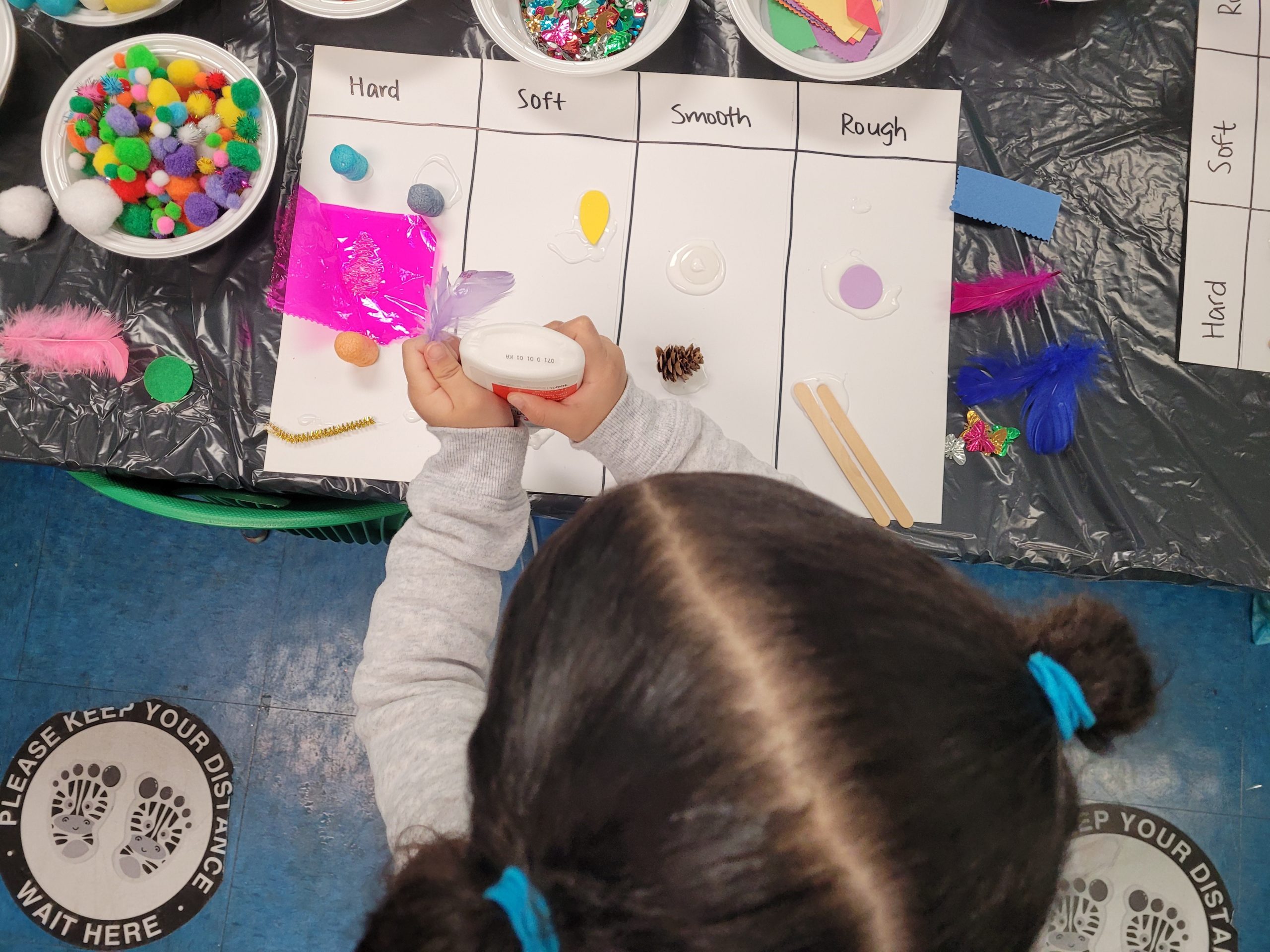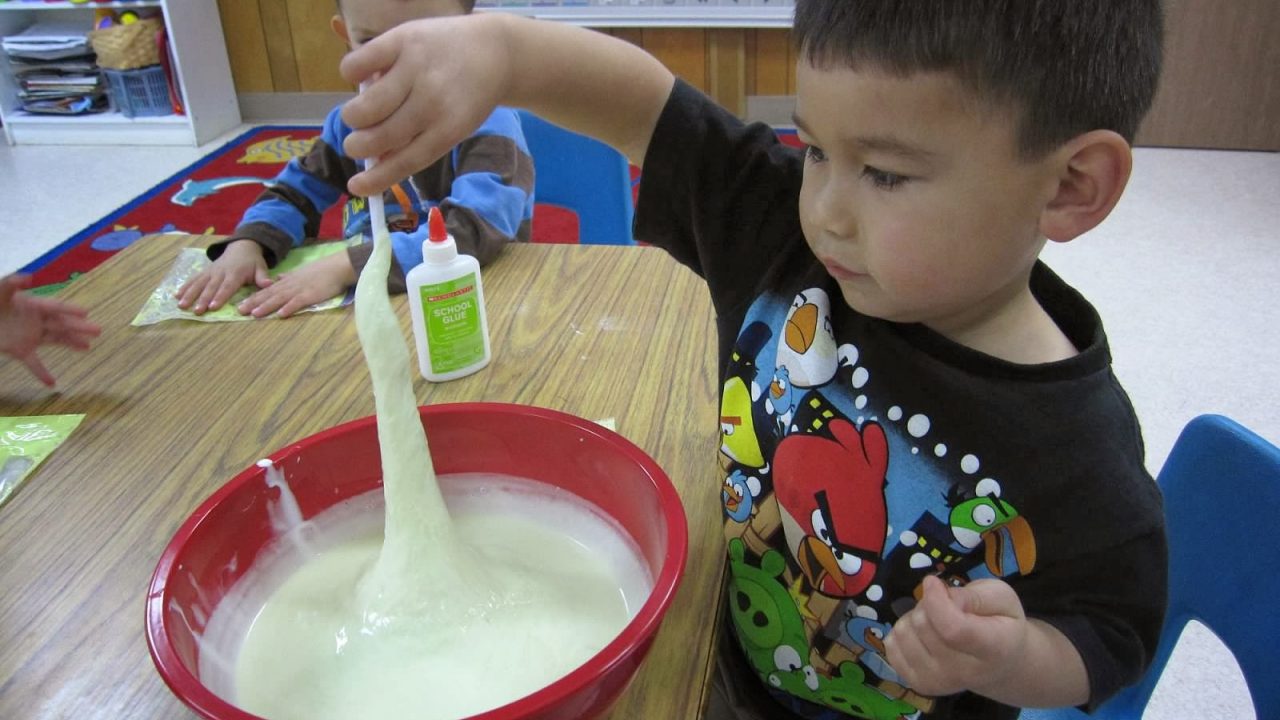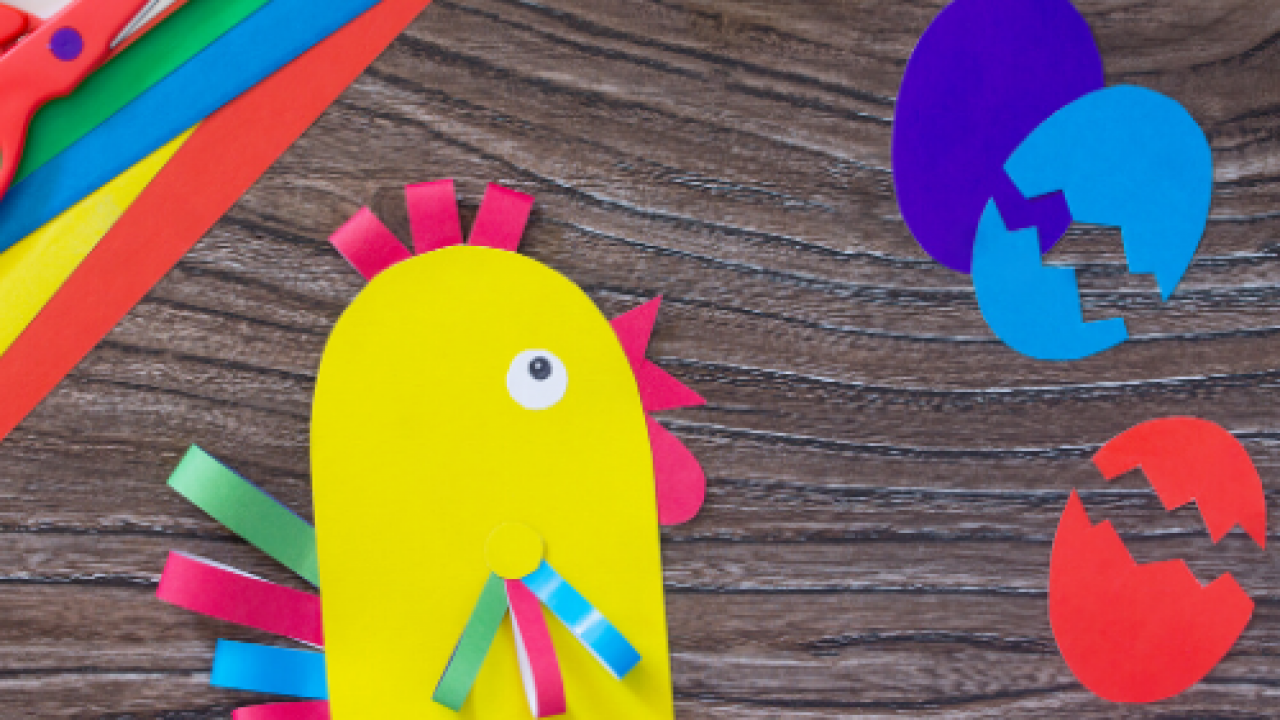
- Insights
Case Study: Goddard Riverside Early Childhood Education
Preschoolers who attend Goddard Riverside Early Childhood Education in New York City are pint-sized investigators.
Through ScienceStart! lesson plans that integrate language, literacy, math, creative play and the arts, children explore the natural world around them. Daily investigations teach them valuable skills in the science process—tools they will use in the years ahead.
“Children learn through exploration and touch and things like that, so having a curriculum where they can explore and experiment based on information they were given in the lesson, I think it’s phenomenal,” says Goddard teacher Shekeema Peters. “It’s a great curriculum for the children.”
Around 40 teachers lead a mix of small in-person, remote, and hybrid classes for young children at Goddard, says Shayna Williams, ECE Coordinator of Goddard’s preschools. When she joined Goddard in June 2020, Williams was unfamiliar with ScienceStart!. Some of the teachers had been using it for a year. She contacted the company to receive training for herself and two cohorts of teachers and directors and ScienceStart! came through in time for the 2020-21 school year.
Because the pandemic has sent most classes online, ScienceStart! provided PDFs of the curriculum so teachers can easily open them on a tablet, phone or computer. Lesson objectives, activities, experiments, vocabulary words, center materials and related books are accessible with a click.
Meeting over Zoom for a remote class, the three- and four-year-olds in Michelmarie Acevedo’s class recently made ice cream. After watching Acevedo go through the steps, the children assembled ingredients at home with help from adults, happily chatting about what ingredients they were using, where milk comes from and other explorations.
“I thought that was going to be challenging. Surprisingly, everybody participated. They were so happy,” she says.
As fun as the activity was, Acevedo had a larger goal for the children: to learn about science. “Is ice cream a solid or a liquid?” she asked. A student noted her ice cream was melting. “What happens when we let it melt?” Acevedo asked. By the end of the experiment, the children had learned an important scientific concept: state of matter.
“For a three-year-old to know the state of matter, I think that is amazing,” Acevedo says.
The vocabulary words stick, Peters adds, because children find the activities and experiments in the ScienceStart! curriculum so fascinating.
“There’s nothing better than actually doing what you learn,” she says. “That’s actually helped my children, the activities and experiments themselves.”
And since every child has unique likes and learning styles, there’s something for everyone. Peters says Color Month is a favorite for most of her students, with lots of experiments around coloring and fun ingredients and tools like corn starch and water bottles. In an experiment using coffee filters, they made pinwheels.
Her children made collages out of items that are rough and smooth, and they smeared a mixture of paint and sand on paper and let it dry to see for themselves what a rough surface feels like. With smooth and crumpled aluminum foil and other materials, they learned what “shiny” and “rough” mean.
Peters says the flexibility and simplicity of ScienceStart!’s curriculum is one of its best features. It can be tailored to the different learning needs of students. And it has been especially helpful for remote learning during the pandemic, which has forced teachers to find creative ways to lead experiments and activities from afar. Remote learning requires a simpler experiment with fewer required materials; on those days “we pair it with a really, really big activity” to make it fun and bring home the lesson, she says.
Whether in person or over Zoom, “when we do the experiments first and show them how it’s going to go, it automatically drives them to want to be hands-on. They’re always wanting to engage in the activities and the experiments. It’s like, ‘I want to do that too!’ We make a big deal out of the experiments.”
And because their online attention span lasts only about 20 minutes, preschoolers need highly interactive ideas that are uncomplicated to deliver, Acevedo says.
The ScienceStart! curriculum makes this easier because it is well-organized, with loads of material forming a solid foundation to teach the day’s concept.
“I’m very grateful I’ve been using ScienceStart! because it’s just so organized,” she says. “We don’t have to figure out what we have to do the next day. We just have to come up with ideas to keep it interactive.”
—Sally Parker
Share This Story:
Related Stories
Doing Science to Make Fun Stuff
February 16, 2021
Blogs
Easter Activities for Preschoolers (Non-Religious)
March 6, 2020
Blogs
Mosholu Montefiore Community Center (MMCC) adopts the ScienceStart! Comprehensive Curriculum
January 20, 2022
New Customers


